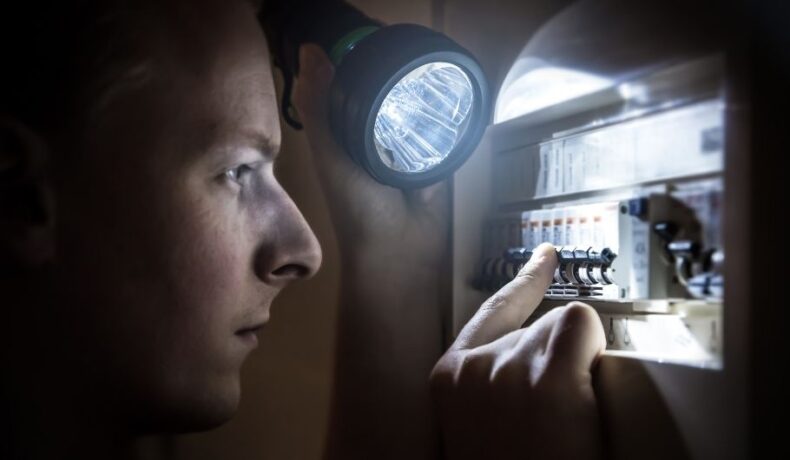As the world’s foremost superpower, the United States endures more power outages than any other developed nation on the globe.
According to federal databases at the Department of Energy (DOE) and the North American Electric Reliability Corporation (NERC), these blackouts lasting more than an hour, have increased steadily for the past decade.
Massoud Amin, an electrical and computer engineer at the University of Minnesota, once noted in his research that people living in the upper Midwest lose power annually for an average of 92 minutes. This is in stark contrast to people in Japan who experience only 4 minutes of blackouts per year.
In 2018, the U.S Energy Information Administration identified year-average power interruption durations ranging from just 1.5 hours in South Dakota, to nearly 30 hours in North Carolina.
A Bunch Of Useless Information Or…?
You may be reading this from outside of the U.S, wondering why and how any of this information applies to you.
To put it simply: power outages are a real threat, regardless of where you live. If they are occurring so frequently in a country like the U.S, chances are you and your area are vulnerable to them too.
So how do you work around blackouts?
Why, Green Technology in the form of solar panels, obviously!
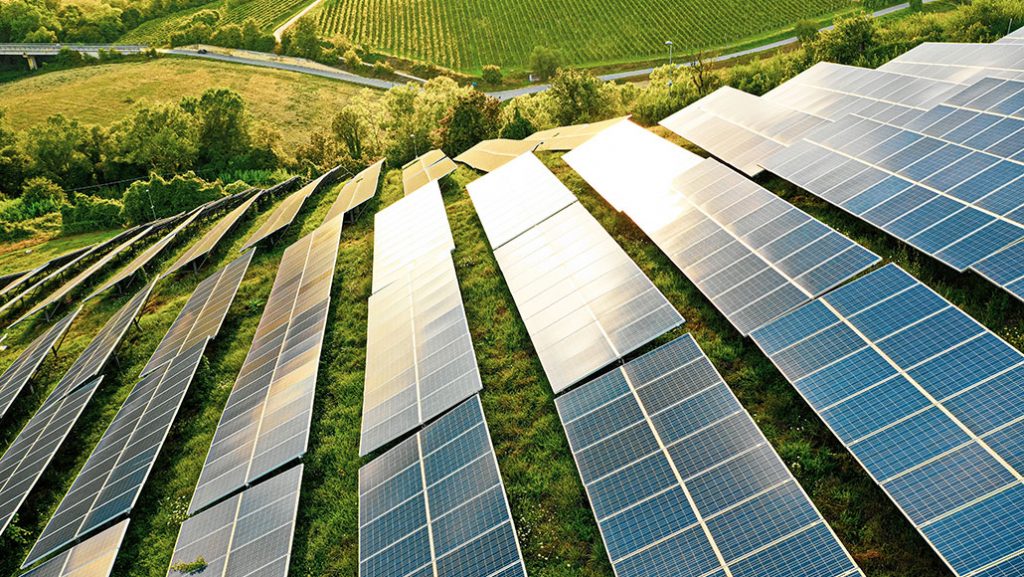
The question is, can solar panels actually be used during power outages and if so, how?
This article aims to answer those questions and more.
Table of Contents
Power Outages in The United States
It’s easy to forget how reliant we all are on electricity.
One moment you’re sitting on the couch, watching your favorite TV show and waiting for your microwave meal to finish cooking. The next, you’re sitting in the dark, bored and dying of hunger (okay, not dying, but still).
So what’s the deal with these power outages? What are they and what causes them?
What Are Power Outages?
A power outage is the loss of the electrical power network supply to you, the end-user.
These outages occur when electricity – through the electrical grid – is unavailable.
While the power in a household can go off due to faulty wiring (among other reasons), this article is referring to situations where entire areas or regions are affected.
Therefore, these outages stem from issues at the source, not from the household.
Causes of Power Outages
The following table identifies common causes of power outages:
- Weather/Natural Disasters
- Human Error
- Equipment Failure
| Reason | Examples |
|---|---|
| Natural Causes | Adverse weather conditions: High winds, lightning, freezing rain, ice on the lines, and snow. Natural Disasters: Earthquakes, floods, wildfires, mudslides |
| Human Error | Traffic accidents, workers, or homeowners accidentally damaging power lines while working. |
| Equipment Failure | Problems with cables, connectors, transformers, and switches that arise from equipment failure or lack of maintenance. |
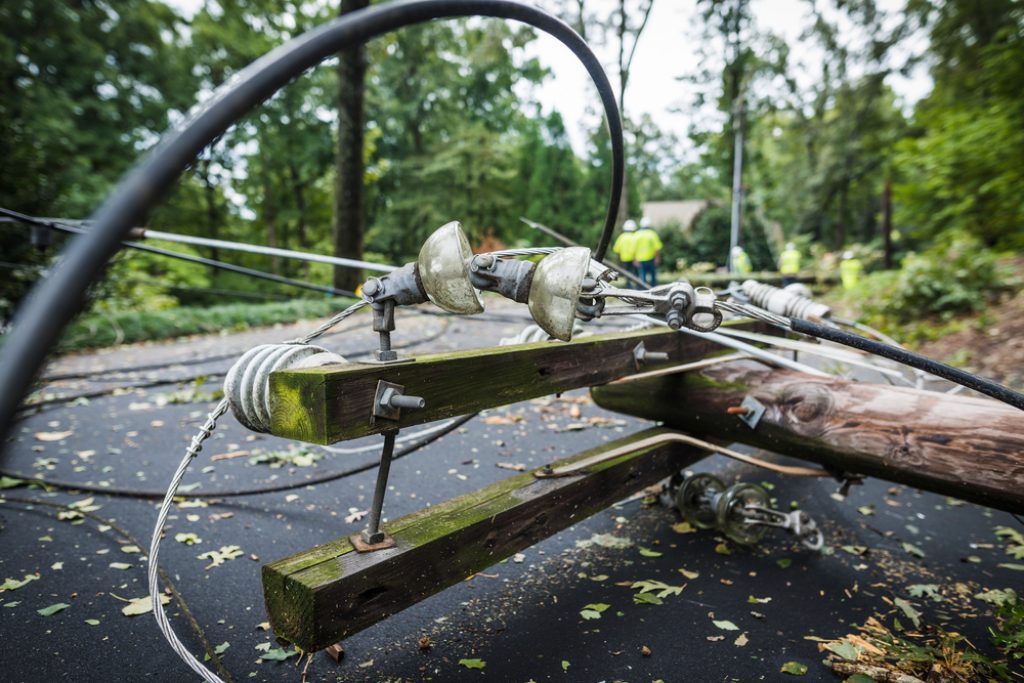
Photo Credit: Scott Alan Ritchie/Shutterstock
Types of Power Outages
There are 4 main types of power outages:
- Blackout
- Brownout
- Permanent Fault
- Rolling Blackouts
Blackout
This is the worst kind of power outage.
A blackout occurs when there is a total loss of power to an area. This tends to take place over a large area and as such, many people are affected.
Blackouts usually result from major structural damage to power utilities – think of lightning strikes or extremely heavy winds that damage infrastructure.
Imagine a scenario where power is totally cut from your town or city and it’ll only come back on in a week, or maybe even several weeks – that’s how bad blackouts can be.
Brownout
You may not be too familiar with this term.
Brownouts differ from blackouts in that they involve a temporary reduction in power, so the power is not totally cut.
This drop in the overall electrical power supply can actually keep the grid from being overloaded and falling into a blackout.
Sounds pretty helpful, right? Well yes, but it isn’t all good news.
Brownouts can have a negative effect on your home appliances and equipment in general. This is due to the lowered voltage that these devices will have to operate on during these periods.
Permanent Fault
Permanent faults are nowhere near as bad as the previous types of power outages.
These faults arise from a sudden loss of power typically caused by a power line fault. They also tend to be more localized, affecting streets or neighborhoods rather than larger areas.
Thankfully, permanent faults are easier to fix – once the issue is repaired power will automatically be restored.
Rolling Blackout
If you happen to be South African and reading this article, you’ll be all too familiar with rolling blackouts (thanks, Eskom).
These are planned power outages that are implemented in areas with unstable grids or poor infrastructure. They can also result from a lack of fuel required to run power utilities at full capacity.
Whatever the reason, these blackouts are necessary because the infrastructure cannot meet the energy requirements of the population that it serves.
Power Outage Numbers In the U.S
In 2020, the U.S recorded 1.33 billion hours’ worth of power outages. This was a notable 73% increase from 2019.
What Is The Leading Cause Of Power Outages In The US?
A report by the US Department of Energy sites adverse weather conditions as the leading cause of power outages in the United States.
This includes flooding, heavy winds, heatwaves, and other weather-related forces that negatively affect both power generation and transmission.
Aging power infrastructure comes in at a close second, followed by human error and animal interference.
If you are in the U.S and interested in using a power outage tracker, look no further than https://poweroutage.us/. It provides a map of the current power outages scattered throughout the US.
Can You Use Solar Power During A Power Outage?
Yes. Technically speaking, you can use solar power during a power outage
More specifically, solar power that has been stored can be used. You cannot actually go about generating power through your solar panels.
Let’s have a closer look at why you would not be able to generate or use your solar power.
Grid-Tied System
Most solar system owners have what is called a grid-tied system.
This system involves an inverter that is connected to the main AC panel and a smart electric meter in your house.
The meter records both the energy that you use from the utility company as well as the energy that you send back to the grid from your solar panels.
In doing this, the electrical grid effectively becomes your “solar battery”. This is because grid-tied solar systems work without any backup battery equipment.
Why Don’t Solar Panels Work During a Power Outage?
If a blackout occurs, a typical grid-tied system has a special automatic shut-off.
But why?
By law, your grid-tied system must shut off if the grid loses power. This is to prevent power from being sent through power lines that are potentially damaged.
This makes it safe for line workers to maintain and repair faulty electrical wiring and infrastructure without the possibility of being electrocuted.
So if this is the case, what is the point of having a solar system in the first place?
Don’t stress, there are a number of ways that you use solar energy when the power is out.
How Can You Use Solar Power During a Power Outage?
Solar Batteries
In recent years, solar storage technology has been improving by leaps and bounds.
This has made it an increasingly viable and popular option for people to make the transition from grid-tied solar systems to hybrid or even completely off-grid systems.
And while looking after our planet is enough of an incentive to invest in these solar batteries, the threat of power outages has increased that incentive even further.
Whether it be lithium-ion batteries like the LiFePo4 battery, lead-acid batteries (GEL, AGM & OPzV), or the Tesla Powerwall, there are plenty of solar batteries out there to choose from.
If solar battery technology has piqued your interest, check out our articles about the differences between lithium-ion vs lead-acid batteries as well as the best solar batteries out there for your solar panels.
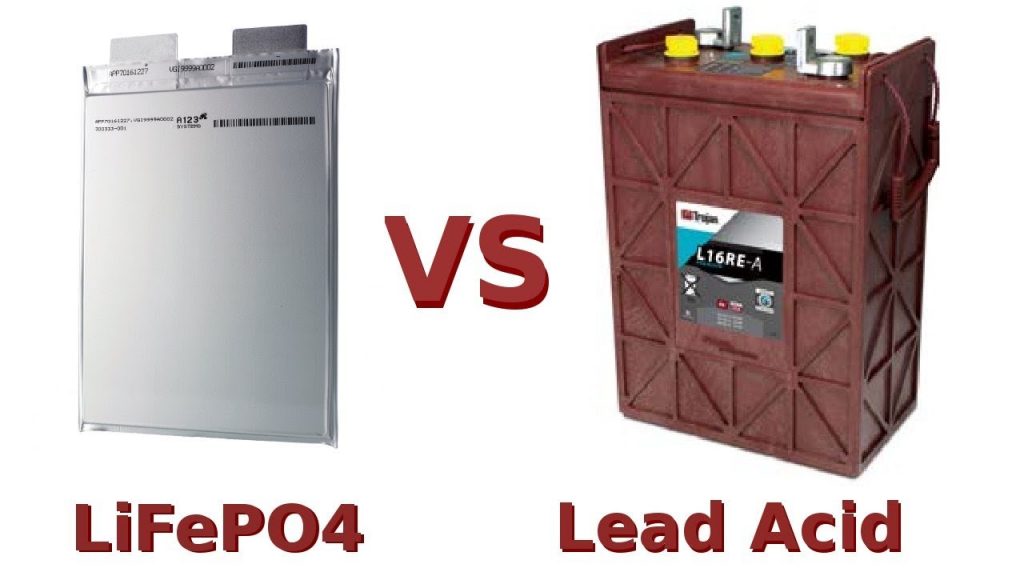
How Solar Batteries Work
Unlike grid-tied systems, a solar system with a battery keeps your power on by disconnecting itself from the grid when an outage takes place.
During a blackout, your system will charge up your batteries during the daytime and discharge them at night.
The great part about this is that if you have enough battery capacity, you will be able to keep running your home through an extended power outage.
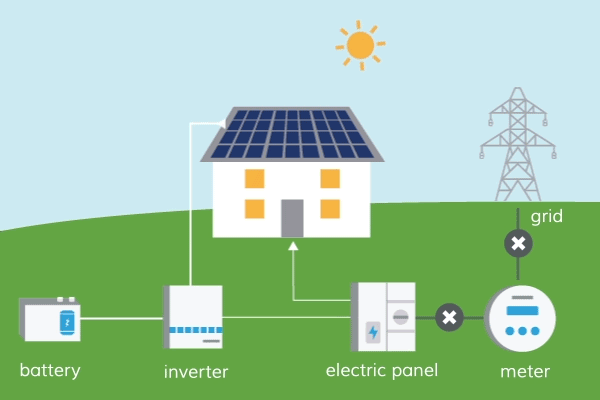
Credit to: solarxperts.net
Pros & Cons of Solar Batteries
Recommended Options
TalentCell Rechargeable 12V 100Ah LiFePO4 Deep Cycle Battery
ExpertPower 12V 200Ah Lithium LiFePO4 Deep Cycle Rechargeable Battery
JITA 12V 100Ah Lithium LiFePO4 Deep Cycle Battery
Solar Generators
Solar battery, PV systems can become very expensive, especially if you want to go completely off-grid.
Some of you may not be financially capable of making a commitment like that, at least not yet.
In comes the solar generator. These generators are wonderful alternatives to full-on battery-backed solar systems.
And while they may not be able to keep an entire house running, they can at least keep your heaters running, or your food cold. They are particularly useful if you are looking for a renewable energy source for camping trips.
What’s more, you can even go the route of making your own DIY solar generator!
However, solar generators do still require a battery as they won’t charge from solar when the grid is down.

How Do Solar Generators Work?
Solar panels convert sunlight into direct current (DC) electricity that passes through the charge controller.
The charge controller then regulates the voltage of the electricity into the battery, and stores it for use later.
When you need to use the energy stored in the battery, the inverter converts the electricity into alternating current energy or AC power. This is what most appliances and devices use.
Pros & Cons Of Solar Generators
Recommended Options
AIMTOM Power Station SPS-155 with 60W Solar Panel ASP-60
ECO-WORTHY 84Wh Portable Solar Generator
Jackery Portable Power Station Explorer 240
Special Inverter/Inverter System
Companies such as Enphase and SMA have made it possible for homeowners with solar systems to use the energy from their panels without a grid-tied system or energy storage.
Their solar inverters are designed to automatically disconnect from the grid in the event of an outage, while still providing power to your home from your solar panels.
SMA Sunny Boy Secure Power Supply
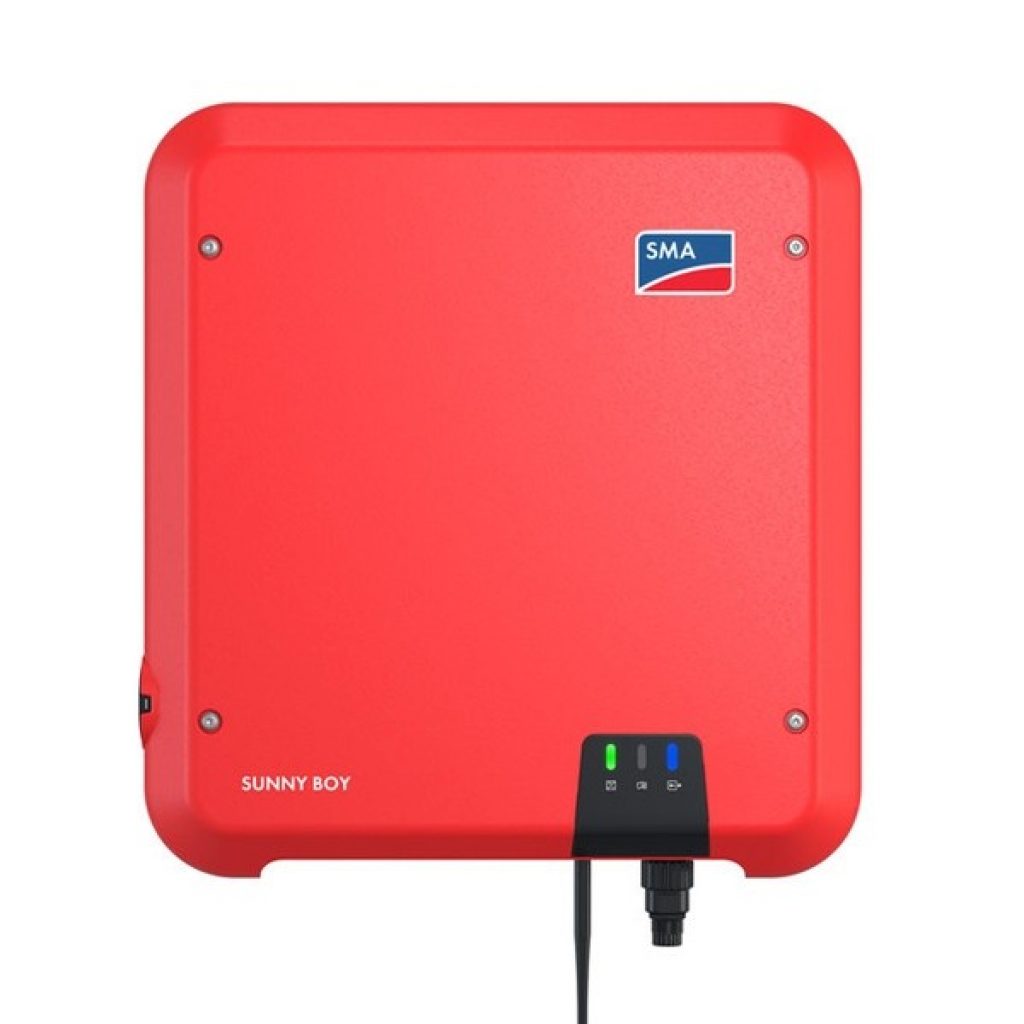
You can install an SMA Sunny Boy inverter with a special circuit that allows you to switch over to pure solar after a power outage.
This particular version can provide you with up to 1500 Watts of daytime power.
While this may not be enough energy for everything in your household, it is perfect for powering up your essential appliances – fridges and lights come to mind.
Please note: this inverter does require sunlight to operate.
Enphase Ensemble
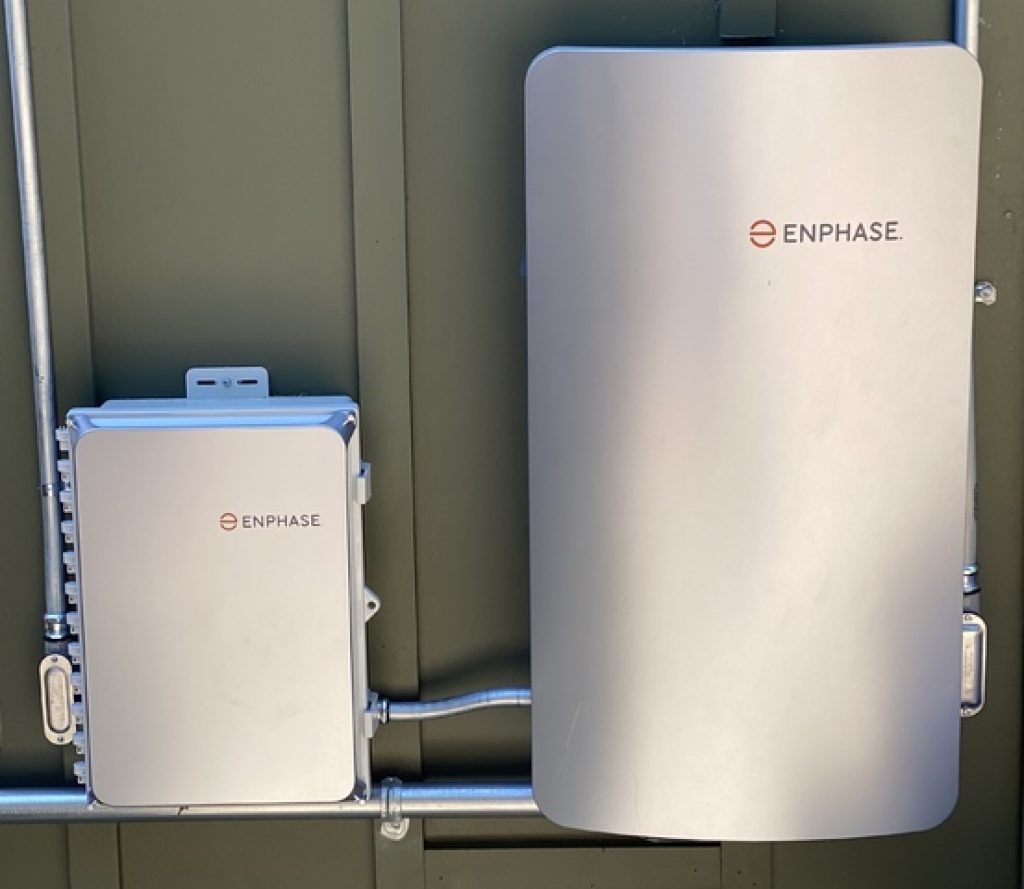
This company’s Ensemble energy management system uses micro-inverters to provide you with “grid-agnostic” solar power.
This means that it can send power from your solar panels to your appliances as long as the sun is shining, without the need for batteries
Will Solar Panels Work During a Power Outage If I Take My Home Off-Grid?
Yes, your solar panels can work during an outage if you take your home off-grid.
However, it is only possible if you have the right equipment.
Because an off-grid system is not connected to the utility grid, you won’t have access to electricity outside of what is stored in solar batteries or produced by a generator.
Sure, these options can be a bit pricey but they do provide you with complete energy independence.
Final Thoughts
Here’s the thing, it is inevitable that the ever-increasing global population is going to put a strain on power grids, worldwide.
That, along with the increased presence of adverse weather conditions due to climate change means that our power utilities are coming under more and more strain.
It is, therefore safe to say that power outages are here to stay unless humanity can work towards more integrated systems with the use of renewable energy sources such as solar.
With all of that in mind, if you do own a solar system (or are looking into getting one) you should entertain the idea of adding batteries, generators, or special inverters to your setup, to get the most out of your solar panels.
The question you have to ask yourself is: is it worth the money?
In our opinion, if you have the room for it in your budget, the answer is a resounding yes!

